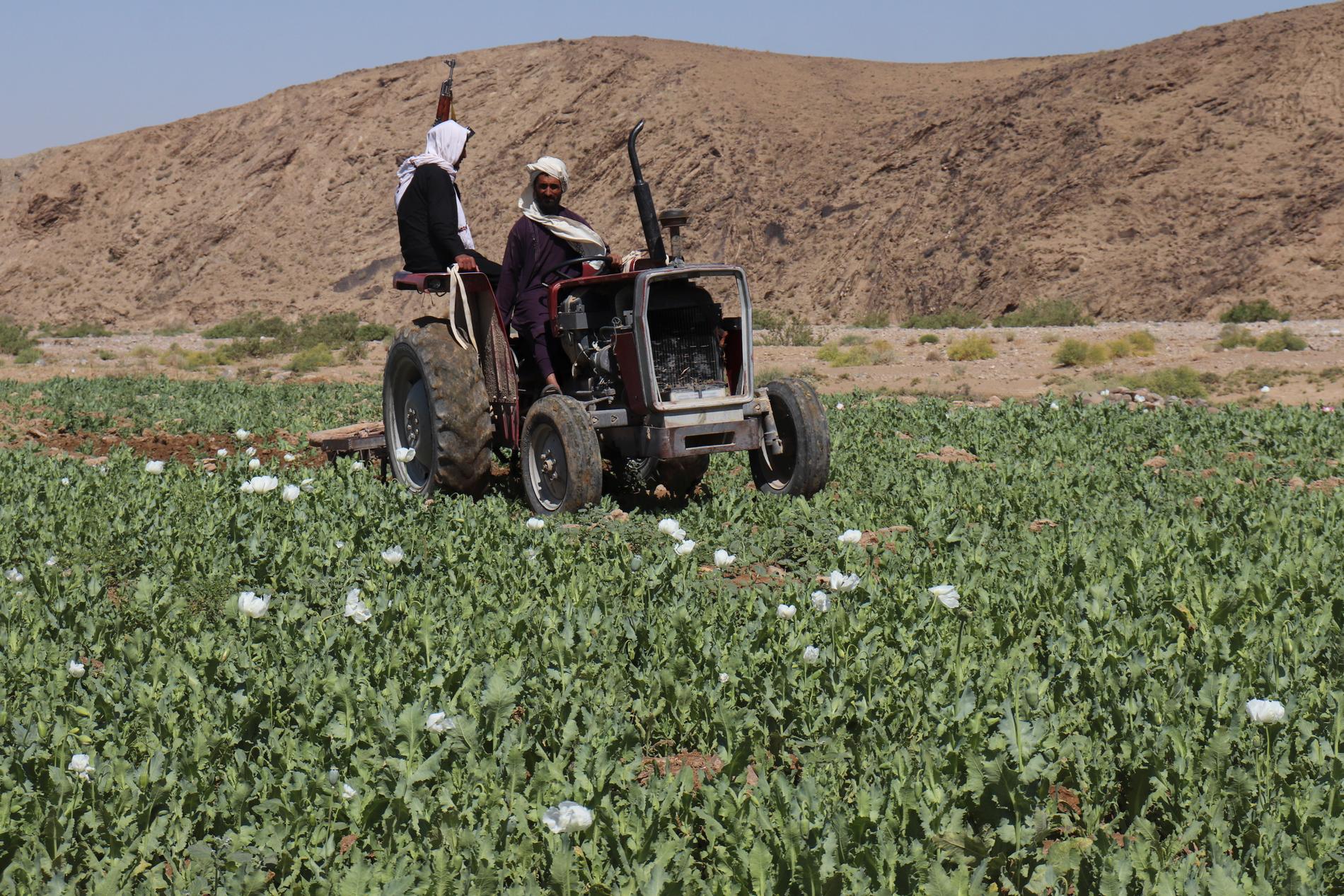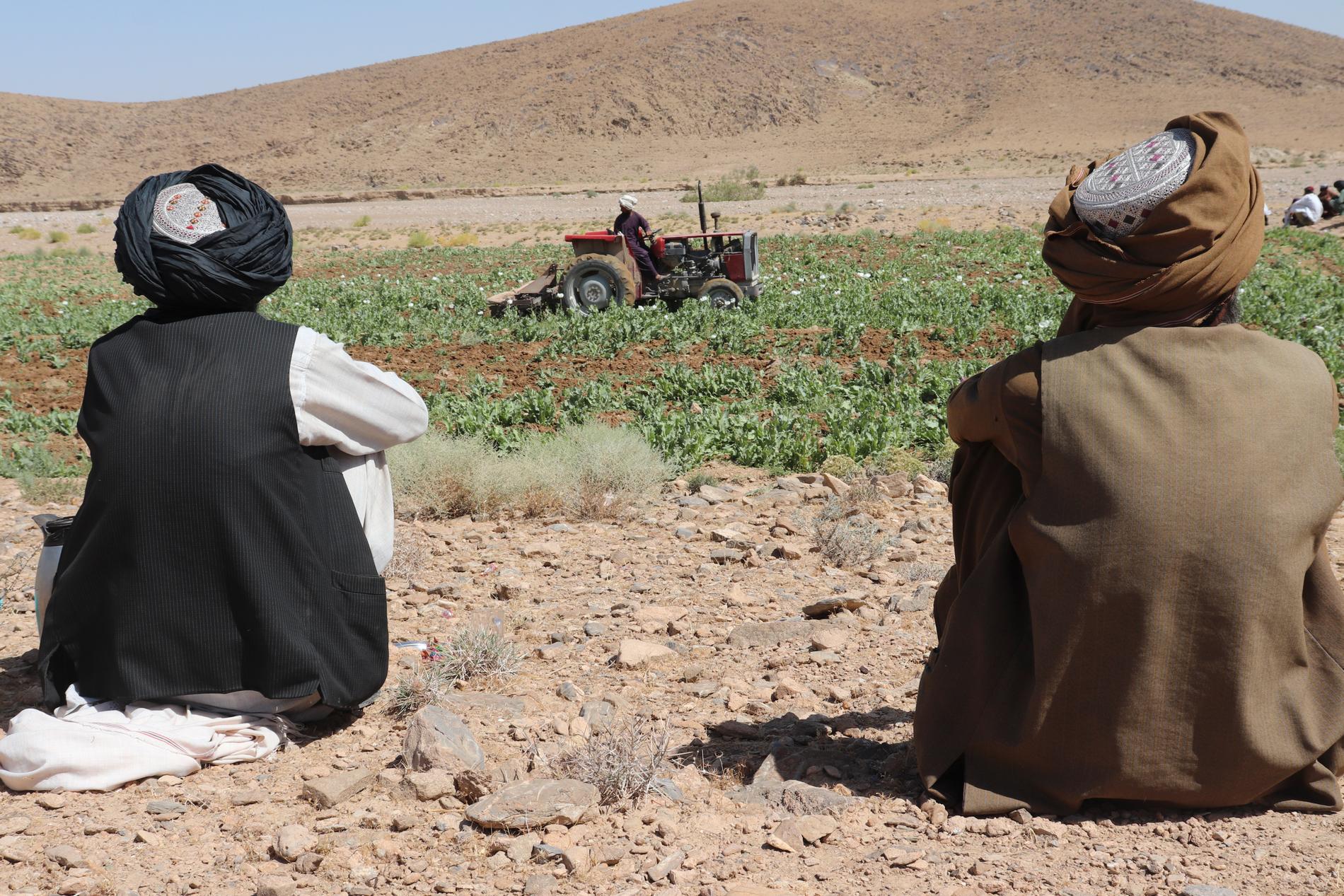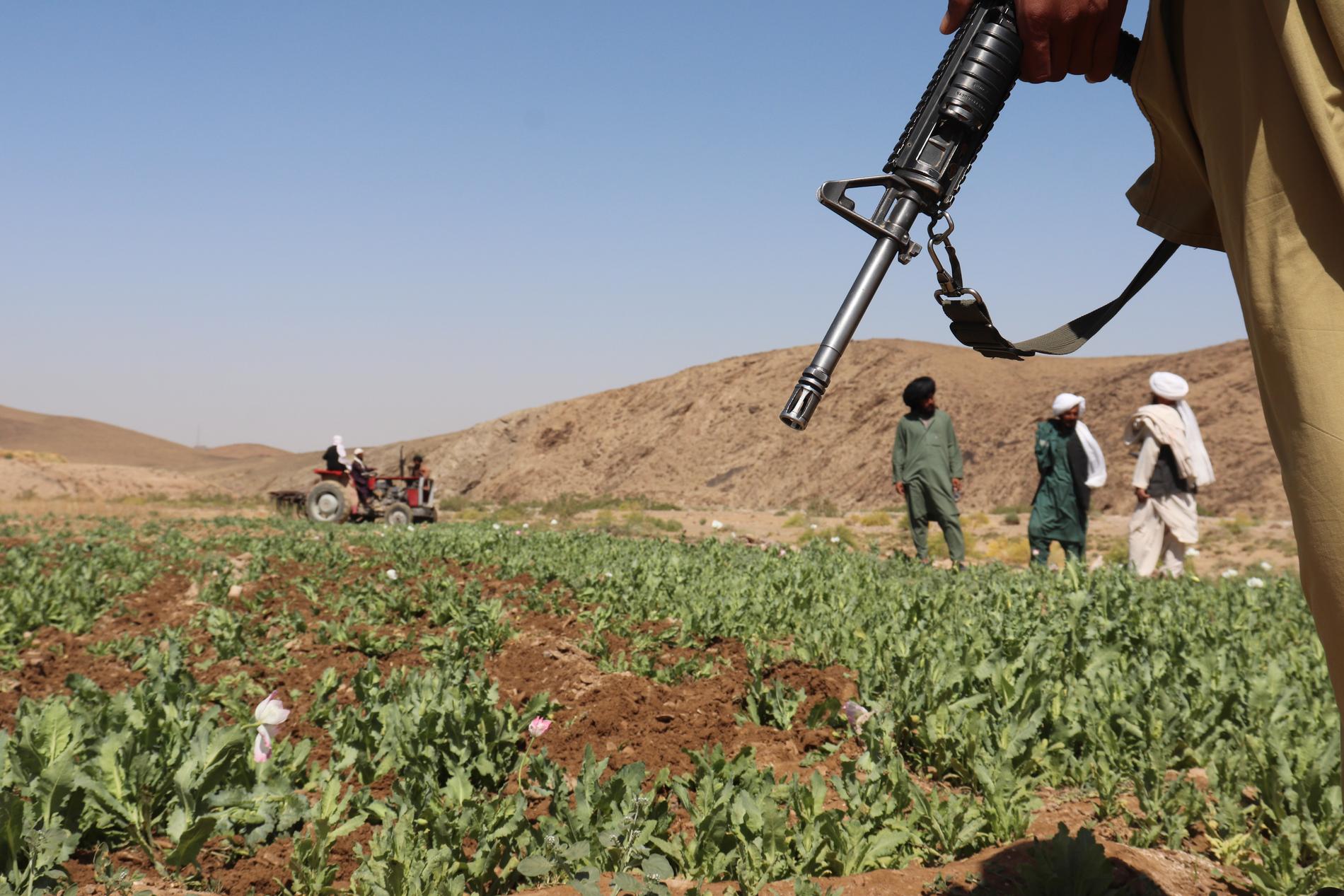The Taliban banned opium cultivation earlier this year. Now they have started the job of clearing the fields of poppy plants – to the despair of poor farmers.
Less than 20 minutes ago
–
A Taliban soldier is on duty while the tractor tears up the poppy plants in a field in Washir, Helmand province. The owner of the field, Noor Mohammed, stands nearby and watches in despair.
Mohammed says that he only has a small patch of soil and that he also lacks water. Other crops will not be profitable for him.
– If I am not allowed to grow poppies, I will not earn anything, he thinks.
Farmers also often take out loans on expected income from the poppy crops in order to be able to buy goods such as flour, sugar, cooking oil and heating oil. Many have therefore reacted with despair to the Taliban’s new ban.
Day workers also despair. They can earn upwards of $ 300 a month by harvesting opium from poppies.
Largest opium producer
Afghanistan is the world’s largest opium producer and one of the most important suppliers of heroin in Europe and Asia. Production has increased over the last twenty years despite, among other things, the United States having spent billions of dollars trying to stop poppy cultivation.
The Taliban, which seized power in Afghanistan just over nine months ago, announced in early April a ban on all opium cultivation in the country.
“Opium cultivation, use, transport, trade, export and import of all forms of drugs, such as alcohol, heroin, tablets, hashish and the like, are strictly prohibited, it was stated in the decree.
Now the work of enforcing the ban has begun. The Taliban’s stated goal is to put an end to the country’s massive production of opium and heroin.
 –
–“Those who break the ban will be arrested and punished in accordance with sharia law,” said Mullah Abdul Haq Akhund, the Taliban’s deputy interior minister for drugs.
But the ban, which is probably welcomed by large parts of the world, could thus be a severe blow to millions of poor Afghan farmers and day laborers.
Today, they depend on the income of the poppy plants to survive. Poppy cultivation also provides better income than many other crops.
The situation in Afghanistan has long been very difficult. The economy has almost collapsed after the international community imposed massive sanctions and froze Afghan funds abroad when the Taliban seized power.
In addition, the country has suffered the worst drought in several years.
The most important province
Helmand is the most important province for poppy cultivation in Afghanistan. That is why the Taliban has now mainly focused its efforts on the farmers here.
Deputy Interior Minister Akhund says the Taliban is in contact with other governments and non-governmental organizations to find alternatives for the farmers. The problem is that many of the crops are not so valuable – or easy to obtain.
It is not known how many poppies have been planted this season, how much has already been harvested and how many fields the Taliban have wiped out so far. Many farmers, who had started early this year with their crops, managed to harvest before the Taliban launched their campaign.
New heights every year
Afghanistan’s poppy production has reached new heights every year in recent years.
In 2021, 177,000 hectares of poppies were planted. It provided enough opium to produce up to 650 tons of heroin, according to calculations made by UN Office on Drugs and Crime (UNODC).
In 2020, production was approx. 590 tons of heroin.
The total value of Afghanistan’s opium production in 2021 was between 1.8 – 2.7 billion dollars. It represents close to 14% of the country’s GDP, and exceeds the value of the country’s legal exports of goods, UNODC writes in its latest report.
During his first term in power in the 1990s, the Taliban also banned poppy cultivation. They launched a massive campaign that nearly wiped out production in two years, according to the UN.
 –
–Without effect
After the US-led invasion overthrew the Taliban in 2001, many peasants began growing poppies again.
Over the next twenty years, the United States spent over $ 8 billion trying to eradicate Afghan poppy production. But they did not succeed. In 2002, about 75,000 hectares of land were planted with poppies, which produced about 3,400 tons of opium. Last year, production was double.
When the Taliban was a rebel movement, they too are said to have shrugged off drug trafficking. The Taliban is said to have made millions of dollars in taxing opium farmers and middlemen.
Senior officials in the US-backed government in Kabul are also said to have made millions from the booming drug trade.
Today, Afghanistan’s opium production is greater than all other opium-producing countries combined. Nearly 80% of heroin produced from Afghan opium reaches markets in Europe through Central Asia and Pakistan.
Now the Taliban government will make a new attempt to put an end to opium cultivation. The question is what happens in the long run, and whether the farmers get help or support to start production of other crops that will give them the necessary return.
–


